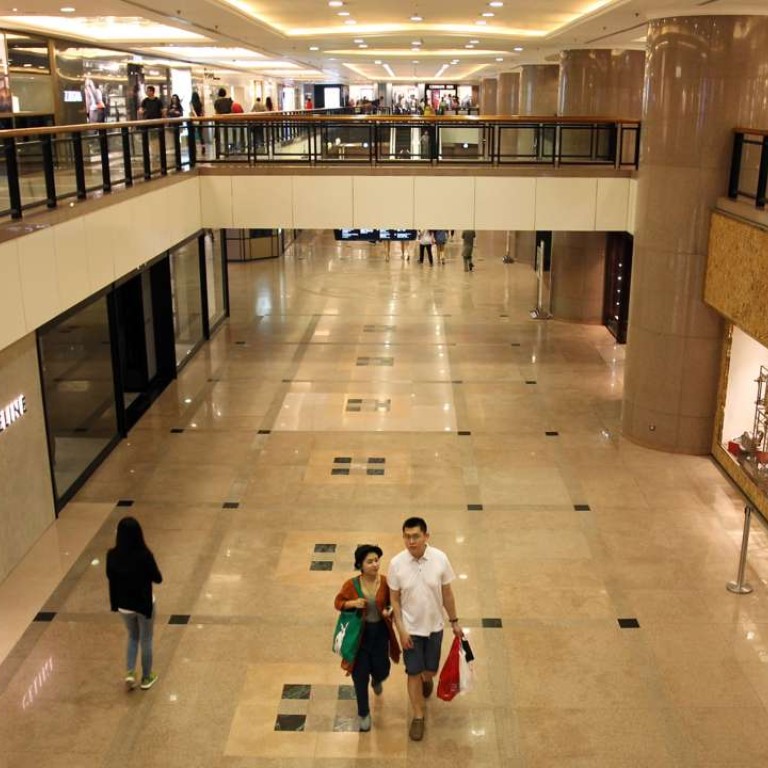
New | Hong Kong start-up Neoma to fill customer data gap for shopping malls
Bluetooth beacons will enable mall operators to know more about shoppers and deliver tailored services
A Hong Kong start-up aims to help malls learn more about their customers and deliver targeted discounts or reward shoppers with a free coffee for time spent in store as the city’s retailers face falling sales and fewer mainland Chinese tourists.
Neoma is bringing Bluetooth beacon technology, which is already used by Macy’s and Target in the United States, to malls in the city to give operators more data on visitors and provide new ways to retain customers.
“Usually for a shopping mall, I ask how much do you know your shoppers?” said Francois Chabaudie, founder of Neoma. “They know how many people come to the mall each week, but I ask who they are? What are their profiles? What are they looking for? Usually they don’t know.”
Macy’s and Target installed Bluetooth beacons in 2014 to deliver digital coupons through push notifications via the stores’ apps.
Beacons are expected to prompt US$44.4 billion in sales in the US this year, according to BI Intelligence.
Hong Kong retailers are facing tougher times as the number of mainland Chinese tourists has fallen and retail sales dropped 12.5 per cent in the first quarter from a year earlier.
Conglomerate Wharf (Holdings) saw retail sales at its two flagship malls, Times Square in Causeway Bay and Harbour City in Tsim Sha Tsui, fall almost 20 per cent year on year during the quarter.
Chabaudie said collecting more data on shoppers and directing customers to new items was one way for malls to harness technology to boost sales.
Each Bluetooth beacon is the size of a cigarette lighter and runs on a battery. The device transmits a Bluetooth signal within a set area that is picked up by customers on their smartphones when they have relevant apps installed.
Neoma’s platform can access the data a user shares on the mall’s app, such as age, gender and interests. All data was anonymised and classed into profiles, which could be used by a mall to tailor their services, Chabaudie said.

“Any information on what your consumer buys, how long they spend in the mall, which areas they visit and how often they come is very valuable,” Assersohn said.
He said malls in Hong Kong tracked foot traffic to learn about customers, but the city’s developers lacked the scale of their counterparts in the US such as Simon Property Group, which has installed beacons in 200 of its locations.
Sun Hung Kai Properties said it used Bluetooth beacons for a three-month dining promotional event in its apm mall, where it attracted almost 10,000 redemptions and saw a 28 per cent increase in sales turnover.
Chabaudie admits it is harder to use Bluetooth beacons to attract tourists as malls must prompt them to download their apps or mark locations where WeChat users can shake their phones to receive discounts through the beacons.
Steven Kwok, manager for greater China at OC&C Strategy Consultants, said discounts via beacons alone would not attract tourist dollars and malls must keep their offerings fresh to attract shoppers.
“Bluetooth beacon technology could potentially lead to increased revenues by helping existing mall traffic ‘discover’ new products and services, but the malls have to be wary of making it too gimmicky, especially if it is driven by promotions,” Kwok said.

